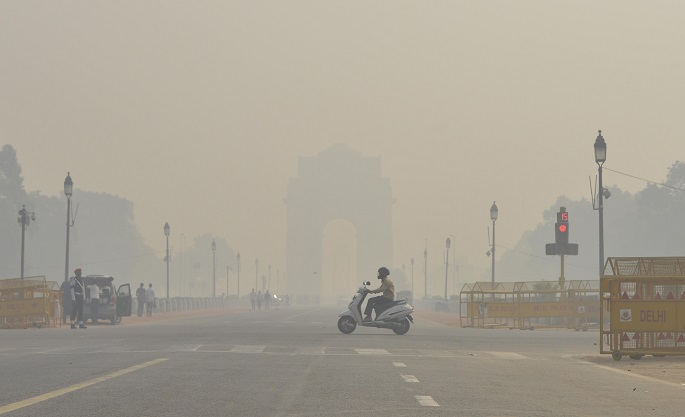90% people worldwide breathe polluted air: WHO
Published : 01 May 2018, 21:00
Though more countries are taking action, still nine out of ten people worldwide are breathing air containing high levels of pollutants, with an estimated death toll of seven million every year caused by outdoor and household air pollution, the World Health Organization (WHO) warned on Tuesday.
In WHO's latest estimates, around seven million people die every year from exposure to fine particles in polluted air. These particles are capable of penetrating deep into the lungs and cardiovascular system, causing diseases including stroke, heart disease, lung cancer, chronic obstructive pulmonary diseases and respiratory infections, including pneumonia, the WHO says.
In 2016 alone, outdoor, or ambient, air pollution caused some 4.2 million deaths, while household air pollution from cooking with polluting fuels and technologies caused an estimated 3.8 million deaths in the same period.
More than 90 percent of air pollution-related deaths occur in low- and middle-income countries, mainly in Asia and Africa, followed by low- and middle-income countries of the Eastern Mediterranean region, Europe and the Americas.
WHO figures show that the highest ambient air pollution levels are in the Eastern Mediterranean Region and in Southeast Asia, with annual mean levels often exceeding more than five times WHO limits, followed by low and middle-income cities in Africa and the Western Pacific.
In general, ambient air pollution levels are lowest in high-income countries, particularly in Europe, the Americas and the Western Pacific. In cities of high-income countries in Europe, air pollution has been shown to lower average life expectancy by anywhere between two and 24 months, depending on pollution levels.
The good news is that more countries taking action. More than 4300 cities in 108 countries are now included in WHO's ambient air quality database, making it the world's most comprehensive database on ambient air pollution. Since 2016, more than 1,000 additional cities have been added to WHO's database, which shows that more countries are measuring and taking action to reduce air pollution than ever before.
According to Dr. Maria Neira, director of the Department of Public Health, Social and Environmental Determinants of Health at the WHO, there's an acceleration of political interest in this global public health challenge, particularly in high-income countries, as many of the world's megacities exceed WHO's guideline levels for air quality by more than five times
Major sources of air pollution are from, for example, inefficient use of energy by households, industry, the agriculture and transport sectors, and coal-fired power plants. In some regions, sand and desert dust, waste burning and deforestation are additional sources of air pollution.
"Air pollution threatens us all, but the poorest and most marginalized people bear the brunt of the burden," says WHO Director-General Tedros Adhanom Ghebreyesus. "If we don't take urgent action on air pollution, we will never come close to achieving sustainable development."
The WHO urges countries to work together on solutions for sustainable transport, more efficient and renewable energy production and use and waste management. It plans to convene the first Global Conference on Air Pollution and Health in late October to bring governments and partners together in a global effort to improve air quality and combat climate change.


